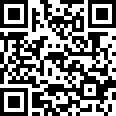
Privacy statement: Your privacy is very important to Us. Our company promises not to disclose your personal information to any external company with out your explicit permission.
April 18, 2024
อีเมล์ให้ผู้ขายนี้
April 18, 2024
April 23, 2024
April 23, 2024
ส่งคำถาม

Mr. Mr. Leon Wen
โทร:0086-025-57561788
Fax:
โทรศัพท์มือถือ:+8619871200893
อีเมล:wenjiajun@superyears.com
ที่อยู่:Nanjing, Jiangsu
เว็บไซต์โทรศัพท์มือถือ


Privacy statement: Your privacy is very important to Us. Our company promises not to disclose your personal information to any external company with out your explicit permission.

Fill in more information so that we can get in touch with you faster
Privacy statement: Your privacy is very important to Us. Our company promises not to disclose your personal information to any external company with out your explicit permission.